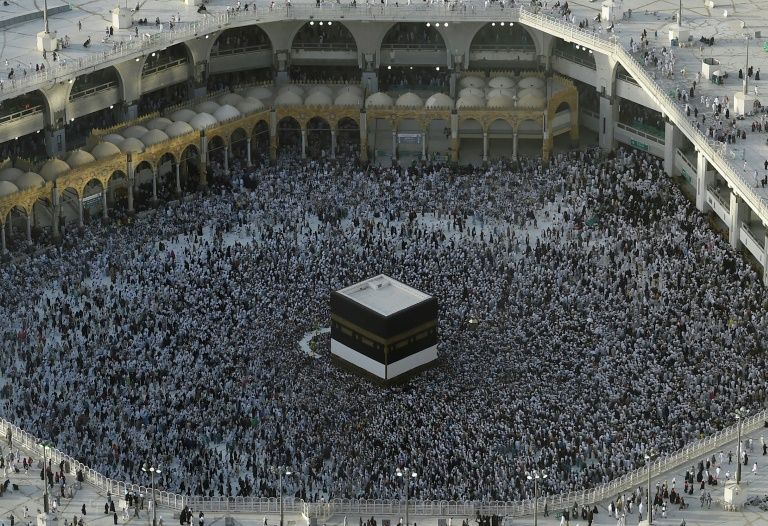Muslims disappointed, but accepting, as Saudi scales back hajj
()
Around 1,000 pilgrims residing in Saudi Arabia will be allowed to perform the hajj this year, authorities announced — compared to some 2.5 million from around the world last year.
The move had looked inevitable for some time and several countries had already pulled out, but the announcement nevertheless added to disappointment for Muslims who invest huge sums and face long waits to go on hajj.
“My hopes of going to (the holy Saudi city of Mecca) were so high,” said Kamariah Yahya, 68, from Indonesia, the world’s most populous Muslim nation, which had already barred its citizens from the hajj earlier this month.
“I’ve been preparing for years. But what can I do? This is Allah’s will — it’s destiny.”
Shahid Rafique, chairman of a Pakistani hajj tour operators’ group, said it was “a moment of sorrow for all the Muslims, especially for those who were making plans for years and years”.
“Professionally, it is a big loss for us, for all the private hajj organisers and we may not be able to recover from this loss for many years,” he said.
– ‘Shattered’ –
In Bangladesh, head of a hajj travel agencies’ group, Shahadat Hossain Taslim, said that “many people will be shattered” by the decision but accepted it was for the best.
“Unlike other countries, the majority of Bangladeshi pilgrims are elderly people, and they are vulnerable to COVID-19,” he said.
A must for able-bodied Muslims at least once in their lifetime, the pilgrimage sees millions of people pack into congested religious sites and could have become a major source of virus transmission.
The minister for minority affairs in India said more than 200,000 people from the country had applied to go on the five-day event, scheduled for the end of July, and they would receive a full refund of any money deposited for the pilgrimage.
Officials in Saudi Arabia, where virus cases have surpassed 161,000, say the pilgrimage will be limited to those below 65 years of age and with no chronic illnesses.
Pilgrims will be tested for the virus before arriving in Mecca and will be required to quarantine at home after the ritual, they said.
The decision has prompted renewed questions about Saudi Arabia’s custodianship of Islam’s holiest sites — the kingdom’s most powerful source of political legitimacy.
A series of deadly disasters over the years, including a 2015 stampede that killed up to 2,300 worshippers, has led to criticism of the kingdom’s management of the hajj.
Mohamad Azmi Abdul Hamid, from charity the Malaysian Consultative Council of Islamic Organizations, said Muslim nations should have been allowed to take a “collective decision”, rather then it being left to Riyadh.
“It’s high time (the holy cities of Mecca and Medina) are managed by an international board represented by Muslim countries,” he told AFP.
The decision also risks annoying hardline Muslims, for whom religion may trump health concerns.
Despite the disappointment, some Muslims were already looking ahead to 2021 and hoping they would be able to perform the pilgrimage then.
“I’m still hoping to go on hajj next year, and pray that I’ll stay healthy until then,” said Yahya in Indonesia.
burs-sr/je
(AFP)
Disclaimer: Validity of the above story is for 7 Days from original date of publishing. Source: AFP.


